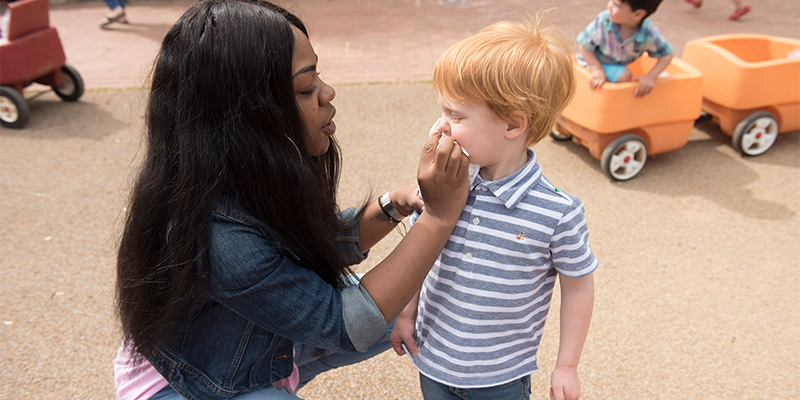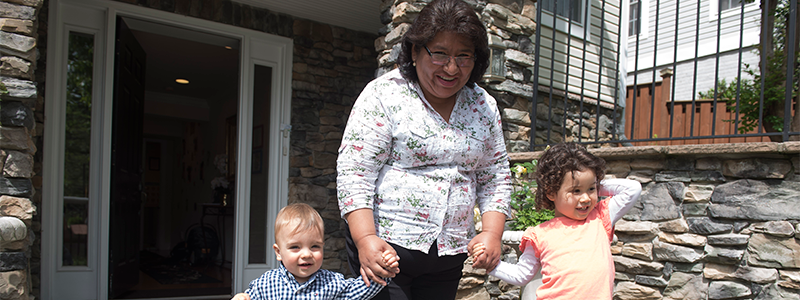
When we talk about health and safety in child care, the discussion is often on reducing or eliminating physical threats to children’s well-being (e.g., unsafe playground equipment of the spread of an infectious disease). CCAoA believes that quality child care helps build healthy children, including their healthy social and emotional development. But what about children who have experienced trauma? How can the child care environment help them heal? This is the third of four blogs CCAoA is publishing on social-emotional health.
Trauma among young children is widespread – so widespread that most child care programs serve children who have already experienced a traumatic event or will experience one during early childhood.1 Many children have been exposed to chronic trauma due to ongoing abuse or neglect, living with a parent with untreated mental illness and/or a substance use issue, witnessing incidents of domestic violence, etc.
Traumatic childhood events overwhelm a child’s ability to cope, triggering a stress response. With chronic trauma, the child’s stress response system is activated too often, for too long, resulting in toxic stress. It can cause changes in the parts of the child’s brain that control learning and behavior. Toxic stress can also negatively affect a child’s physical health and social-emotional development.
Trauma-informed care
Providers experience the effects of early childhood trauma through children’s challenging behaviors in the classroom. Some common behaviors include excessive crying, regression, withdrawal, physical symptoms (headache, stomachache, etc.), aggression and other acting-out behaviors. Yet many adults, including providers, do not recognize these as possible reactions to trauma.
One reason is that few providers have been adequately trained to identify and address trauma in the children under their care. In trauma-informed programs, providers and staff can recognize the signs of trauma, understand its impact on young children and implement strategies to create an environment where all children can feel safe and nurtured. If a child exhibits challenging behavior, providers understand a child is stressed, not simply “acting out.” Their response is focused not on punishing the child, but rather on helping.
Many young children spend much of their day in child care programs, and providers can play a crucial role in helping them recover from trauma. A recent publication by Child Trends publication includes information about a number of promising trauma-informed approaches that have emerged that could be integrated into existing ECE programs. Among them:
- Trauma Smart – an intervention aimed at developing an integrated, trauma-informed culture including young children, families, and ECE staff
- Link-Kid – a centralized referral system in Massachusetts that provides free trauma screening, referral and follow-up services to children exposed to trauma
What can CCR&Rs do?
- Website/social media/newsletter: Include information about your state’s early childhood mental health consultation services on your website and feature mental health consultation services on your social media or in your newsletter. Providers may not be aware of this service or may not understand how a mental health consultant can support them and the children and families they serve.
- Professional development: Remember that adults experience trauma and can benefit from a trauma-informed approach, too. Consider how your professional development environment and strategies might affect both child care providers and your staff who have experienced trauma in the past.
- Quality: Work with partners in government or nonprofit agencies to create a voluntary recognition program that acknowledges child care programs for going above and beyond to provide trauma-informed care.
- Advocacy: Advocate for your state to include trauma-informed practices and/or staff training in their Quality Rating and Improvement System standards. Alaska requires QRIS programs at levels 4 and 5 to participate in trainings specific to trauma and adversity.





